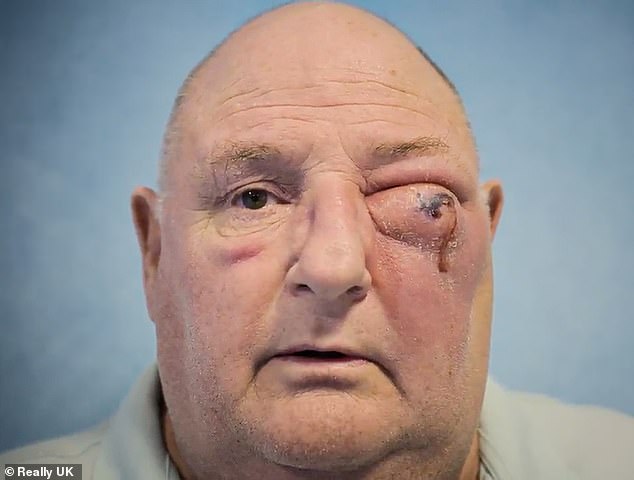This is the shocking moment a man’s dental infection turned into a life-threatening flesh-eating disease.
Terry, from Suffolk, appears in Really’s new show The Face Doctors, which follows patients who undergo life-changing surgery and cutting-edge treatment to reconstruct and repair their faces.
In episode two of the show Terry, 65, visit experts at Addenbrooke’s Hospital cambridge with an infected eyeball as doctors race against the clock to save not only his eye, but his life.
What began as a toothache, frightened doctors diagnose as an aggressive flesh-eating disease and necrotizing fasciitis, which can cause organ failure and has a high mortality rate.
After the pus is removed from his eyelid, Terry is rushed into surgery with Addenbrooke’s specialists, eye surgeon Cornelius Rene and facial surgeon Malcolm Cameron.
Terry, 65, is diagnosed with necrotizing fasciitis, a flesh-eating disease, in the latest episode of Really’s The Face Doctors.
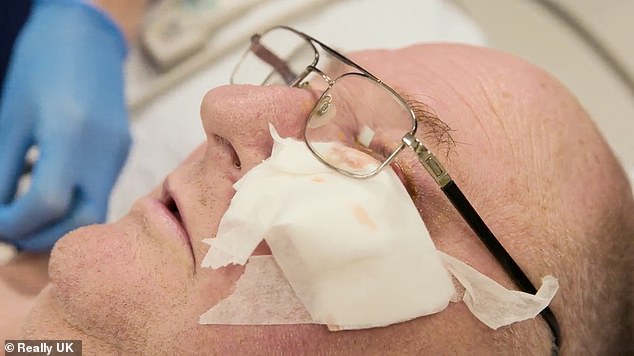
Terry visits experts at Addenbrooke’s Hospital in Cambridge with an infected eyeball as doctors race against the clock to save not only his eye, but his life.
Speaking before the surgery, Cornelius emphasized the urgency of the situation: “If this is not handled quickly, there can be devastating consequences for the patient, it can be life-threatening.”
“If we leave this any longer, you could quickly go into multi-organ failure, so your lungs and your kidneys could fill up, and this actually has a pretty high mortality rate.”
In the operating room, everything was hands-on with a whole team of specialists supervising Terry’s operation.
They began the surgery by removing more excess pus and dead tissue, as Malcolm cites “the oldest surgical rule in the book”: “if there’s pus, let it out!”
The team deliberately chose to leave the wound unstitched so that any remaining infection could leave the wound, while they continued to monitor his recovery.
Dr Shadi said: “We think the cause of this was probably inside the mouth, but it has spread around the eye.”
‘Dental infections can be really dangerous because if they spread to the eye socket you can lose vision and it would be catastrophic. Furthermore, you could be left with serious disfigurement with consequences for your self-esteem.’
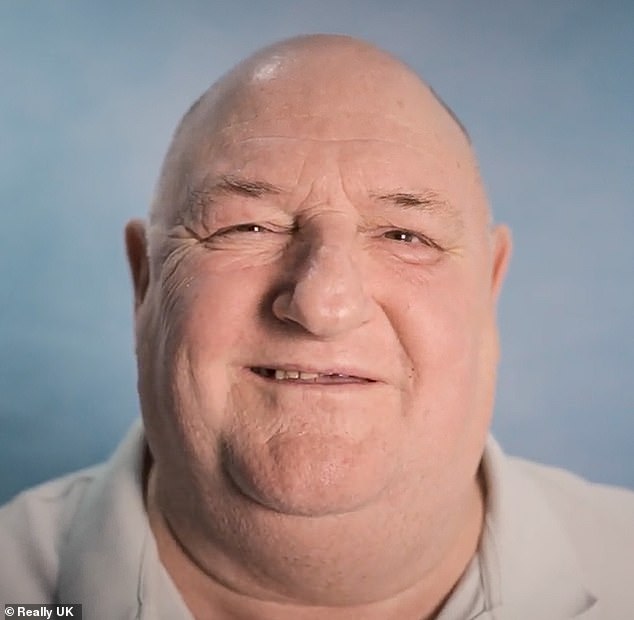
Eight weeks later, Terry’s recovery is remarkable: he already seems to be completely back to normal.
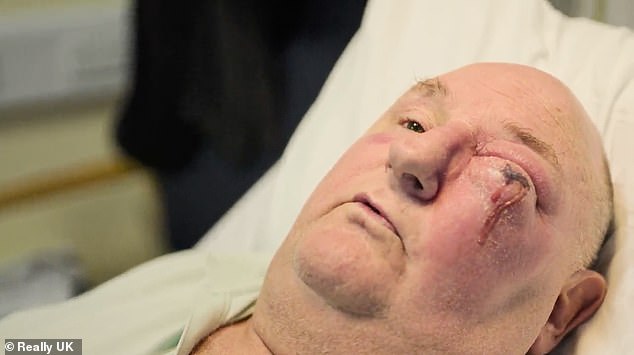
Terry’s condition began with a toothache. He took antibiotics but the infection returned.
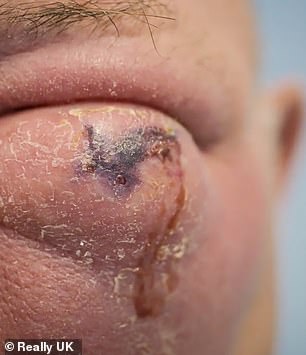
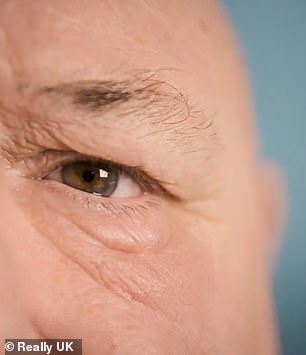
Pictured: Terry’s eye before surgery (left) and after having fully recovered eight weeks later (right)
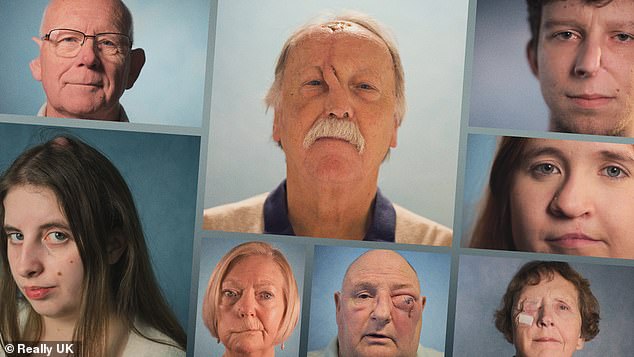
The Face Doctors: Wednesday, May 15, 9pm, for real and available to stream on Discovery+
The skin around Terry’s eyelid had turned black from streptococcal organisms that cause soft tissue death, and was progressing rapidly.
Necrotizing fasciitis, more commonly known as “flesh-eating disease,” is a rare but extremely cruel bacterial infection.
The disease develops when the bacteria enters the body, often through a minor cut or scrape, but sufferers must be treated immediately to avoid death and are usually given powerful antibiotics and surgery to eliminate the dead tissue.
Symptoms include small red lumps or bumps on the skin, bruising that spreads rapidly, sweating, chills, fever, and nausea. Organ failure and shock are also common complications.
Terry said: ‘I had an abscess and they gave me antibiotics. I took all of that and it went away, but then it started coming back again. So I went to the dentist and he took it out, but it started to swell.
“I really left it too long and waited until Monday to go back to the dentist.”
Eight weeks later, Terry’s recovery is remarkable as he looks completely normal with no scars in sight following his successful surgery.
In a salutary moment, his family gathered to toast him with prosecco as Terry expressed his gratitude to the team at Addenbrooke’s.
‘All the people who saw me, the whole team, even in the operating room, there were a lot of people there, they all did a fantastic job. I’m very grateful to them,’ Terry said.
He added: “I think they saved my life. I’m very lucky to be back to normal basically. I still have my good looks!
“I don’t think I realized how dangerous it really was, as I could have lost an eye. Beyond that, it would have gone to my brain. And that would have been curtains.
‘It was a lot more serious than I thought, it makes you realize I’m lucky. I’m really lucky to still be here. All for a toothache!
The new series The Face Doctors airs Wednesdays at 9pm on Really and is available to stream on Discovery+


